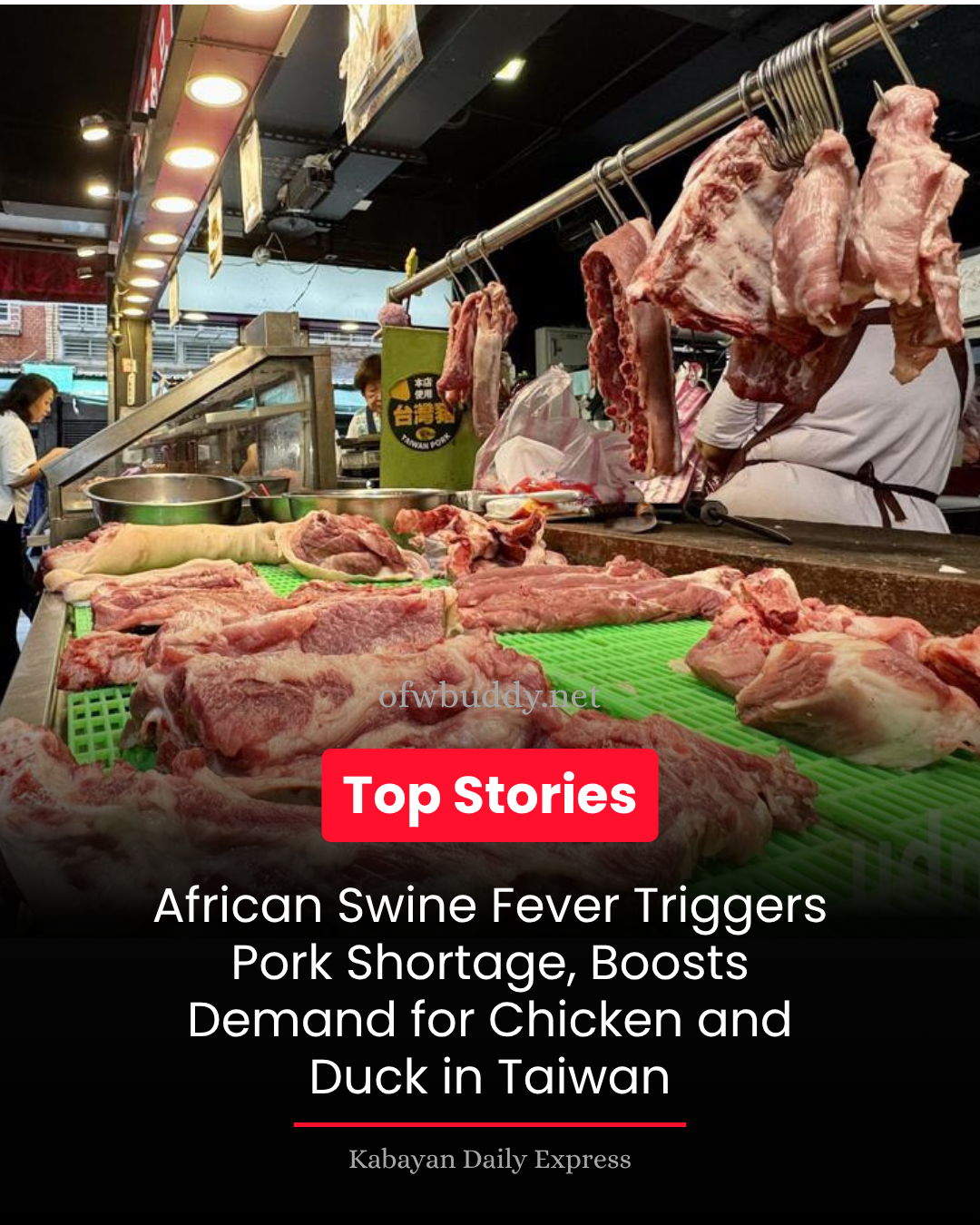October 26, 2025 | Taichung and New Taipei City, Taiwan
A suspected outbreak of African swine fever at a pig farm in Wuqi District, Taichung City has prompted the Ministry of Agriculture to impose a five-day nationwide ban on pig slaughter and imports starting October 22. The move has significantly affected pork availability in traditional markets, particularly in New Taipei City, where many fresh pork stalls have temporarily closed due to supply shortages.
A visit to Ziqiang Market in Zhonghe District revealed that most vendors selling “Sanxia black pork” and other local pork varieties had shuttered their stalls. One remaining vendor explained that customers prefer fresh, warm-bodied pork. Although he attempted to sell frozen stock, consumer interest was low, leaving him struggling to maintain sales.
“This week, I’m selling whatever I can, but business is very poor,” he admitted, highlighting the uncertainty faced by traditional market vendors during the ASF scare.
Surge in Demand for Chicken and Duck
While pork sales have plummeted, vendors selling fresh chicken report a surge in demand. Many customers are turning to alternatives as concerns about African swine fever reduce pork consumption. Sales of fresh chicken have increased by approximately 20%, according to vendors.
Similarly, roast chicken and roast duck stalls are experiencing booming business, with long queues forming early in the morning. Some vendors report selling out their stock before noon, prompting shoppers to arrive early or make reservations to secure their orders.
Consumer Confidence Remains Low
Although pork is still available in some supermarkets and chain stores, options and quantities are limited, and consumers have not rushed to buy in bulk. Housewife Mrs. Liu noted that pork is hard to find in markets and that most stores only offer frozen meat. “I’ll just wait a few days and eat chicken or fish instead,” she said, expressing hope that the ASF issue will be resolved quickly to prevent serious impacts on daily life.
The African swine fever scare highlights the vulnerability of pork supply chains in Taiwan and demonstrates how sudden livestock disease outbreaks can rapidly shift consumer behavior toward alternative protein sources.

